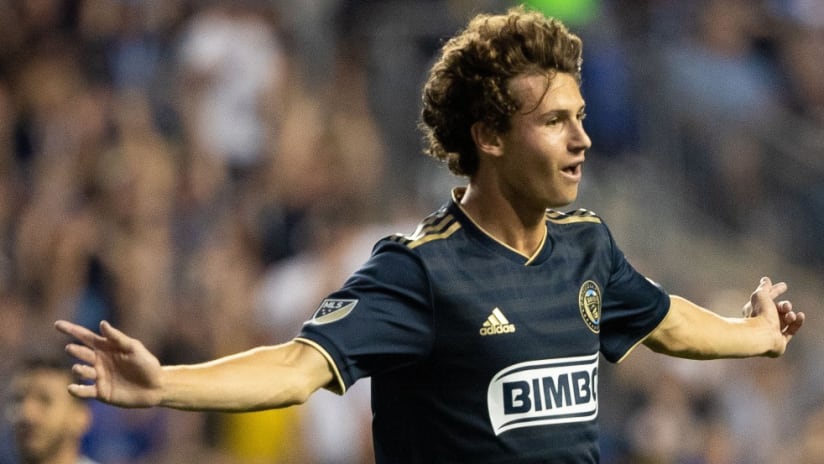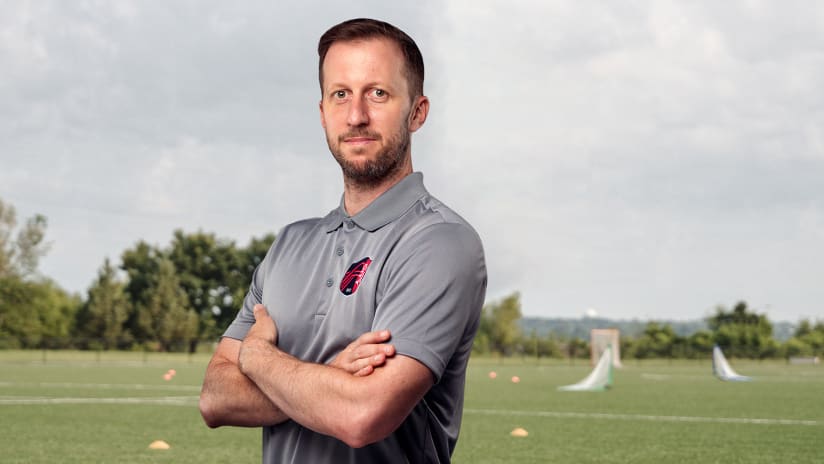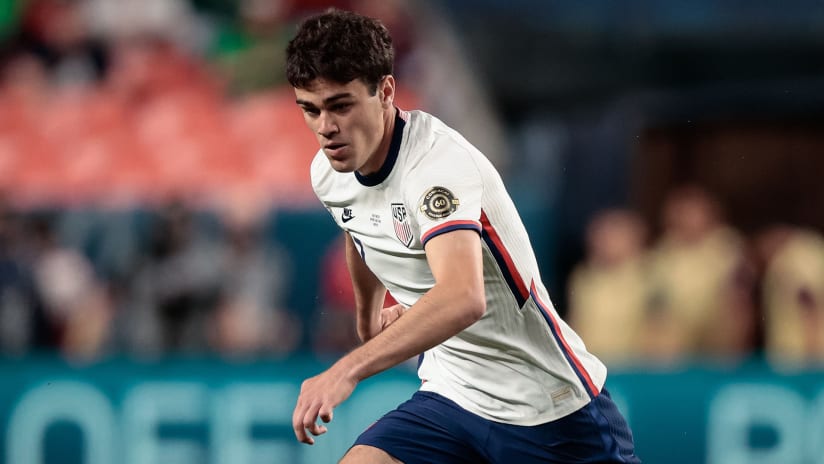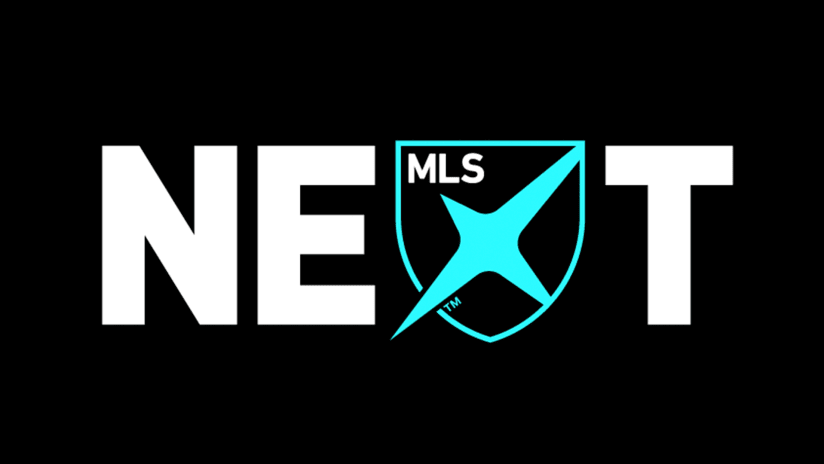Is Major League Soccer a league of choice? Or is it a selling league? Turns out the answer to those questions isn't binary. MLS can be both, and its future depends on it.
Come January, we’ll say auf wiedersehen to Brendan Aaronson. It’s off to Red Bull Salzburg and the UEFA Champions League for the Philadelphia Union homegrown midfielder, maybe even with an MLS Cup and Supporters’ Shield in hand. The Union will get a reported $6 million initially, potentially rising to $9 million, for their investment in Aaronson’s development, not to mention more than 50 first-team appearances.
The Union described the deal as "historic." It's the highest transfer fee ever paid for a U.S.-based Homegrown Player. The league may be losing one its most exciting talents but it's gaining so much more. It's a transfer to be celebrated — for Aaronson, for the Union, for MLS and for US soccer.
Deals like this are the future, and if MLS is looking for a new tagline, I’ve got a suggestion: The league where dreams come true.
Just listen to Aaronson.
“Playing in Europe has always been a part of my dream. I’ve been able to accomplish the first part of my dream, to play for my home city, and am so excited for this continuation of my journey,” he said.
I am excited to watch Aaronson carry the MLS flag in Europe. I'm excited for more players like him to come through the pipeline.
MLS can be a league that signs (and plays) academy kids who grow up in our stadiums dreaming of becoming professional players. It can be a league that respects that some of those same players also dream of playing in Europe someday. It can be a league that recognizes it’s mutually beneficial to do everything possible to make both dreams come true.
In the process, MLS can be a league that produces UEFA Champions League quality talent. It already is the league that produced Brendan Aaronson, Reggie Cannon, Tyler Adams, Alphonso Davies and Zach Steffen. Our academies helped launch the careers of Gio Reyna, Weston McKennie, Chris Richards and Joe Scally, who will head to Germany in January.
And, yes, MLS can also be a league that is the destination. A league that produces and houses U.S. and Canadian national team regulars who compete at World Cups. Be a league of Jordan Morrises, Gyasi Zardeses, Jonathan Osorios and Richie Laryeas.
Because if MLS is that league, the massive investment owners have made in academies will start paying a conveyor belt of seven-figure dividends. If MLS is that league, the quality of our soccer will improve rapidly, for club and for country. If MLS is that league, perceptions both home and abroad will change and change quickly. If MLS is that league, it will simultaneously be a league of choice and a league that stakes a valuable place in the global transfer market.
It will take much more than just saying we want to be a bigger player in the global market. It will take strategic thinking. It will take even more commitment and investment. It will take preparation. It will take creativity. Sometimes, it will take sacrifice in pursuit of bigger goals. It will take selling players, backing up words with action.
It will take Jim Curtin placing his faith in an 18-year-old No. 10 just as his team finally looks poised to challenge for trophies. It will take the fulfillment of promises, the sort we saw between FC Dallas and Reggie Cannon. It will take pipelines of talent ready to replace the players who eventually make the jump.
The Union get it. "This has always been the goal of the club," as sporting director Ernst Tanner said in the Union's announcement of the deal.
They can sell Aaronson without fearing for their first team because fellow Homegrown Anthony Fontana is breaking out (five goals in 362 minutes) and they invested big in Jamiro Monteiro. FC Dallas can sell Cannon because their academy produced a right back prospect every bit his equal in Bryan Reynolds, with more talent coming behind him.
That’s what successful clubs across the world do. It's what Aaronson's new club Red Bull Salzburg do. It's what the club he may one day move on to, RB Leipzig, do. They develop players. They scout players. They buy players. They succession plan. They sell players when the time and price is right. They do all that while winning and competing for trophies.
Our clubs can master the balance between developing, buying and selling, too. They’re getting better at it every single transfer window, but there’s so much more room to grow.
There are still perceptions in Europe that hold back the American and Canadian player. Not technical enough. Lacking tactical awareness. They’re just perceptions, but they must be broken to get where we want to go, one export at a time. Davies is doing his part. So are Adams, Reyna, McKennie and so many others. There’s a record number of Americans in the UEFA Champions League, but it will take time.
If Aaronson is worth $9 million and succeeds at Salzburg then jumps to the Bundesliga, what will Moses Nyeman, Caden Clark or Cade Cowell be worth a couple years down the line? Value in the market comes with production. It comes when European clubs believe in the North American player. It comes when success in a new and challenging environment is expected. That only comes when you make players' dreams come true, when you sell.
It’s important to remember Europe isn’t the only dream to chase. Not everyone will be sold. There are trophies to be won. New contracts to be earned. Legends to be written. All in MLS.
Not every Homegrown is destined to be sold. Not every player will be like Aaronson. Zardes is a homegrown player, a US international and one of the league’s top goalscorers. Same for Morris. Marky Delgado is one of the best midfielders in the league. Nick Lima just dropped two goals on the Galaxy as an outside back. Mauricio Pineda is one of the best young central defenders in the league.
There’s room for every possible path. MLS can be a league of choice. It can be a league that sells some of its brightest talent, too. But, most importantly, it ought to be a place where dreams come true, whether that’s in Europe or right here in North America.













